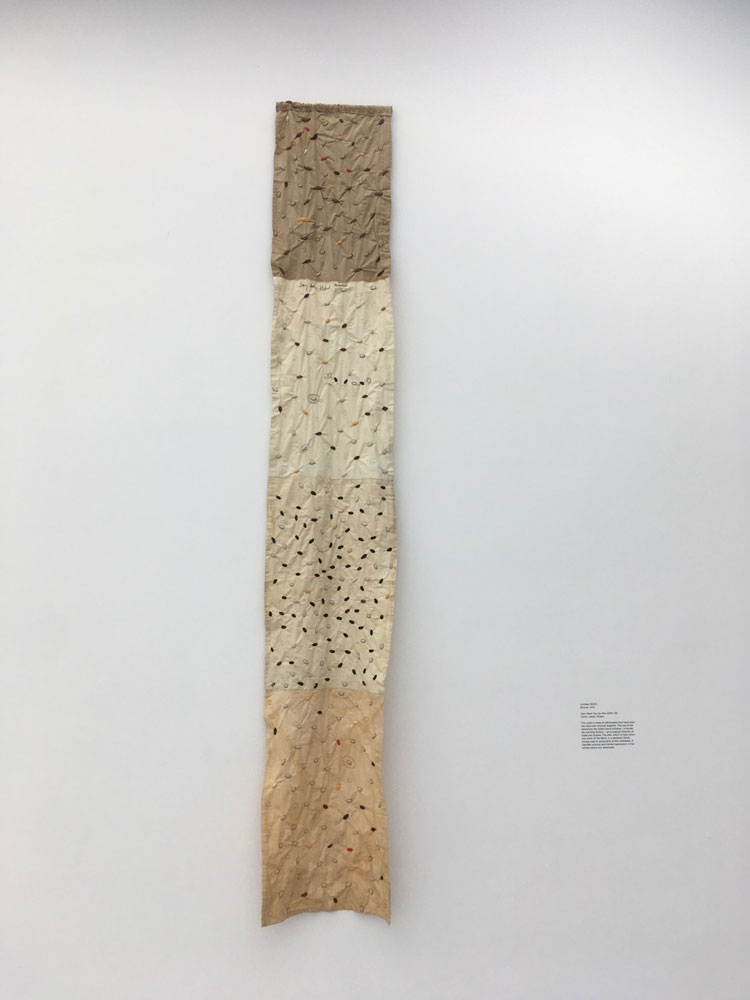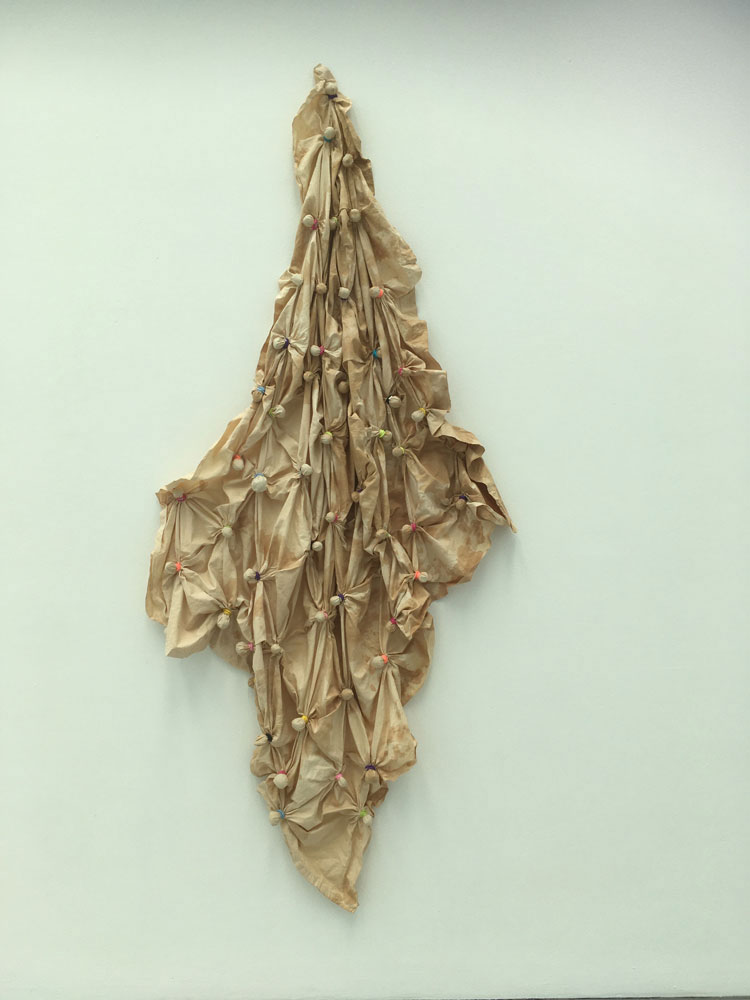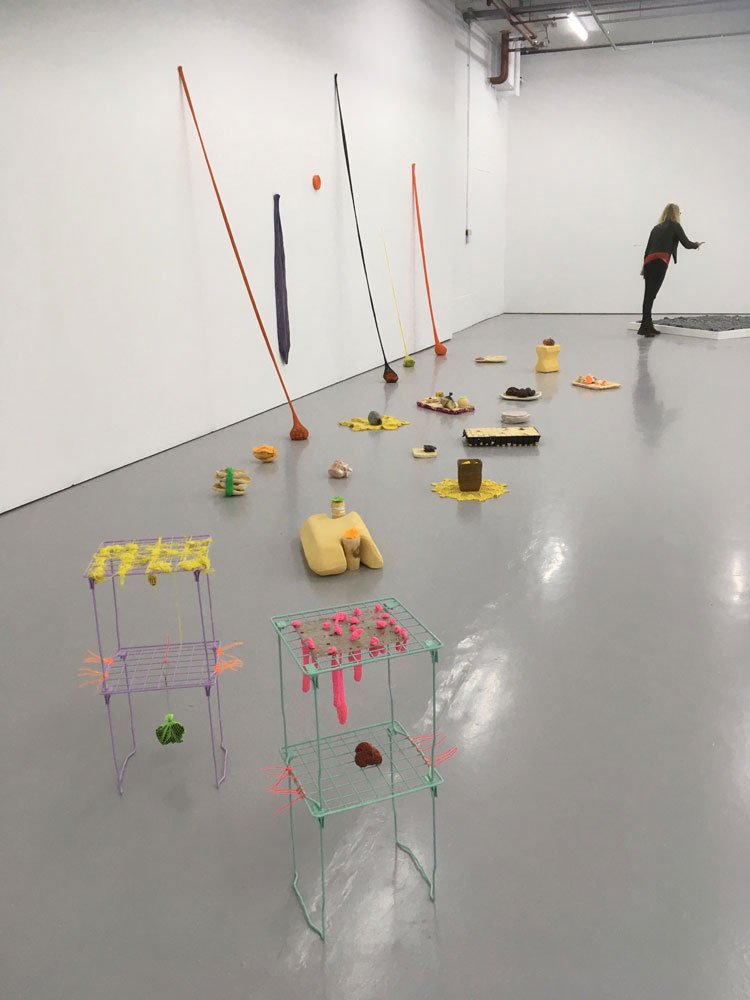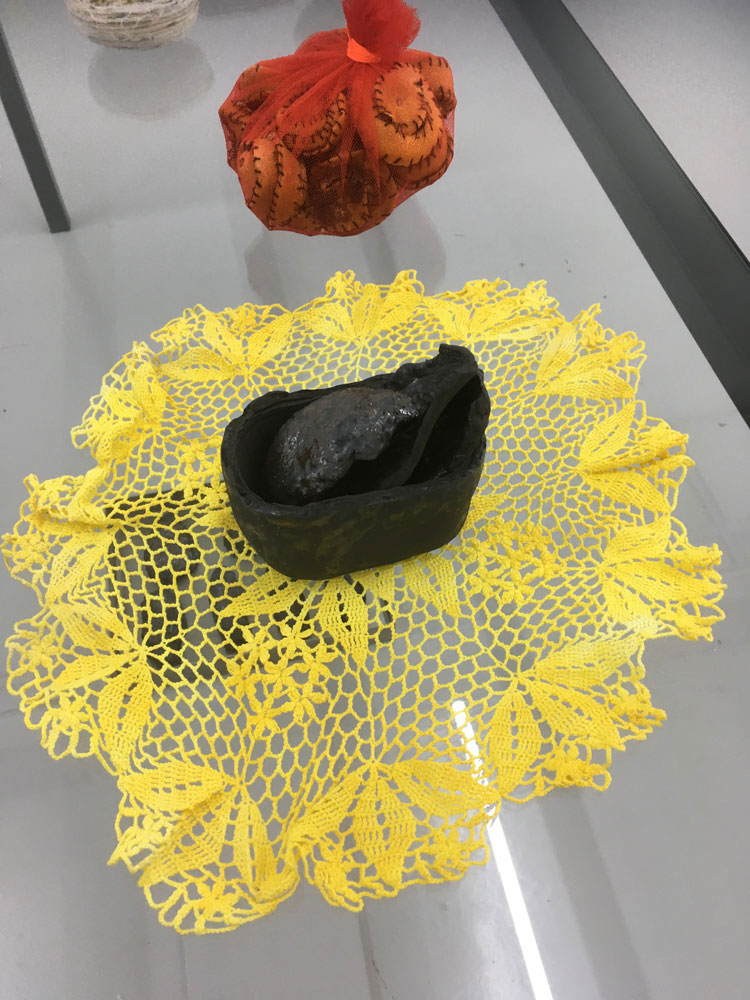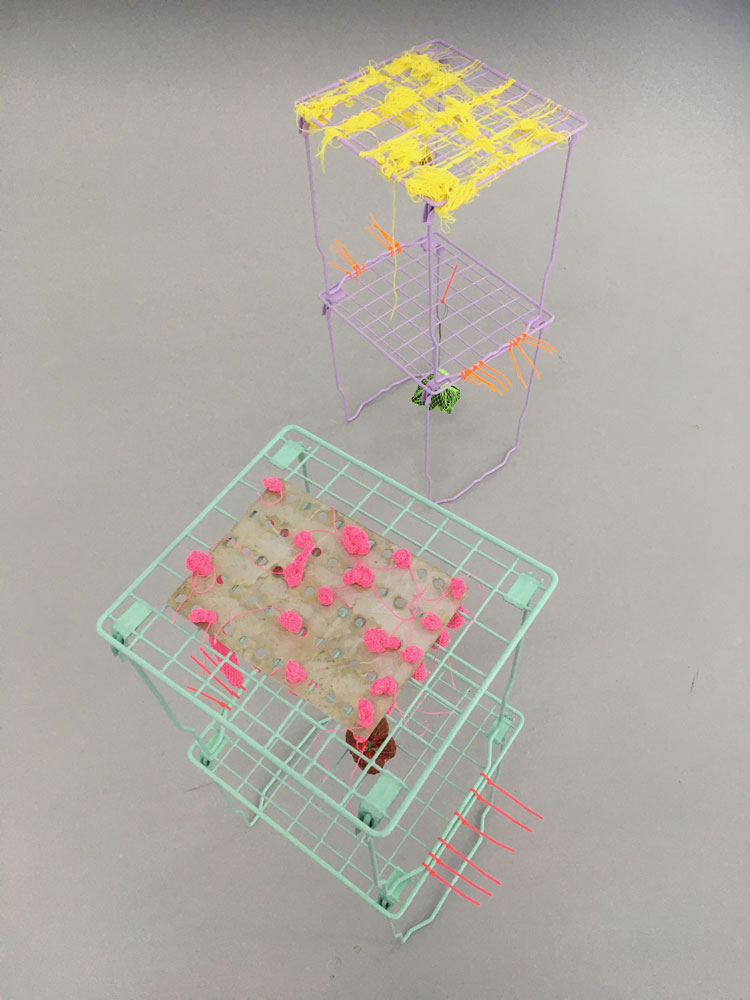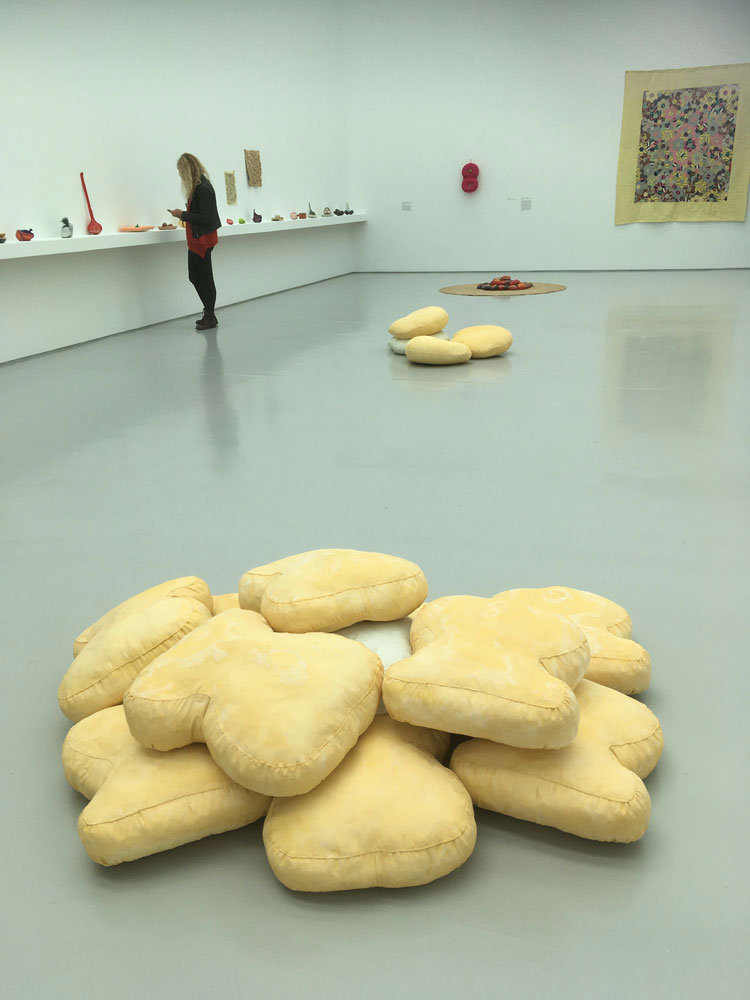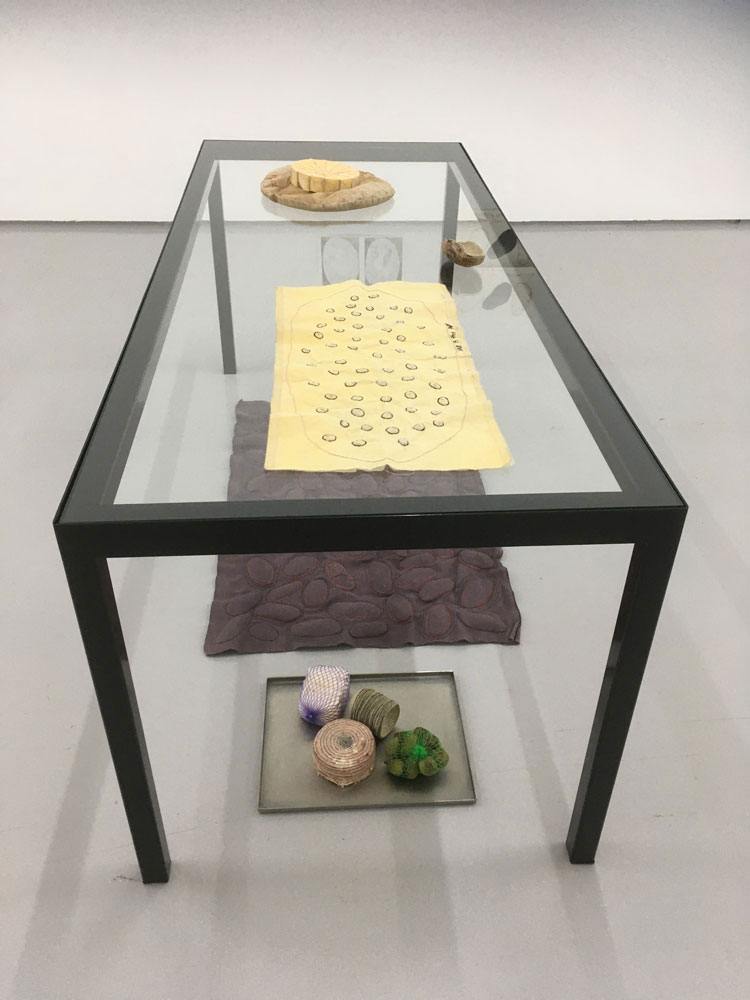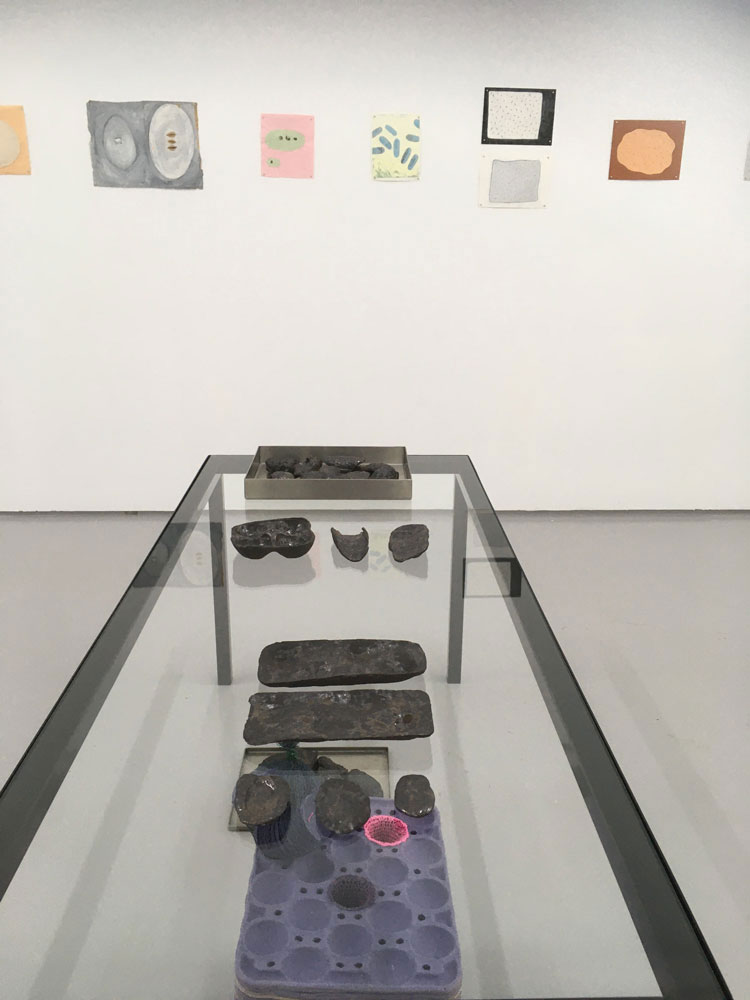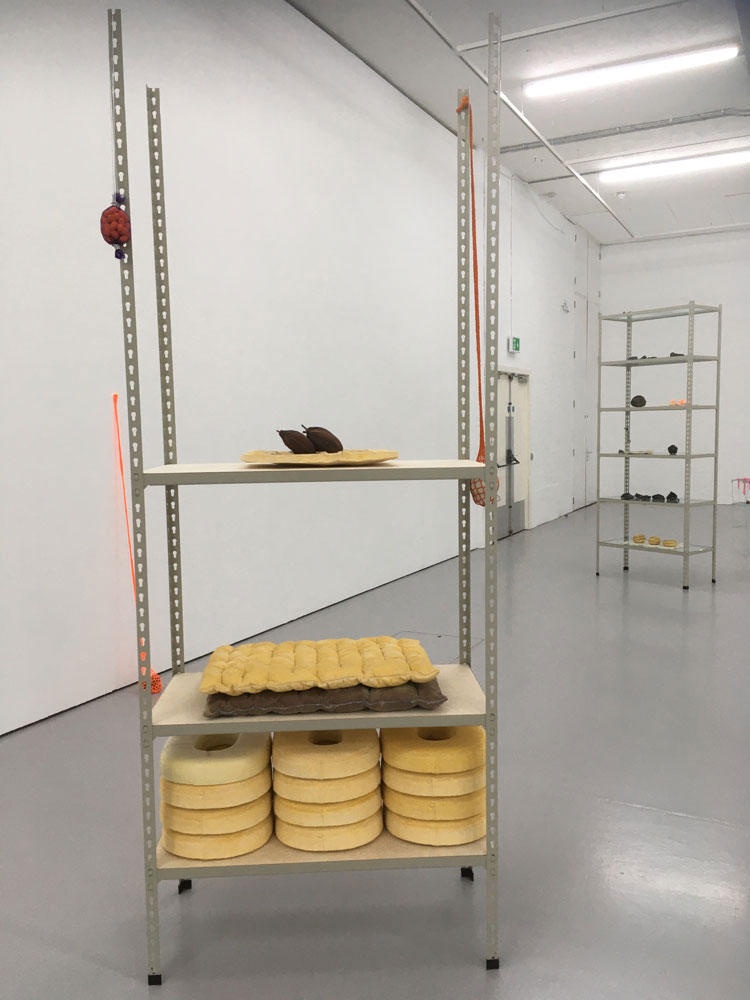

Spike Island, Bristol
19 May – 5 September 2021
by VERONICA SIMPSON
What a difference an artist residency can make. The last time I saw the Montserrat-born, British artist Veronica Ryan (b1956) was at the Art House, Wakefield, where she had been artist in residence, working in a narrow room behind the gallery. When I visited her mid-residency, the room was stuffed with cushions, padded mats and pillows, all in various stages of being knotted, quilted, puckered, twisted and tie-dyed. In the resulting show, they appeared clustered and stacked, vertically or horizontally, in spectral, human-sized forms of mottled grey, sepia, pale teal or dark indigo, one memorable pile of nursing pillows skewered with long needles, acupuncture-style (Armour, Armature, 2017). They probed and prodded the imagination with their dual references of comfort and protection, what is embedded and what is revealed; large, pallid presences that filled the gallery space.
At Spike Island, where, thanks to the pandemic, her Freelands Award residency has been patched over two years, Ryan has had an abundance of space and time, albeit divided between here and her home in New York; nevertheless, the workshops and studios at Spike Island, a former tea-packing factory, are generous and the double-height exhibition space vast. And - whether or not these factors are causal – it seems to have allowed her work to luxuriate in the small and everyday objects, at their own scale. Ryan has permitted herself to dwell on the insignificance and yet profundity of the nuts, fruits, seeds and pods that have long been a motif, without the need to inflate or expand them or recast them in more “precious” materials (there are only two, small bronzes here). As she herself has said: “Small objects can have an immense resonance and suggest monumentality in the world.”
[image15]
The artistry is in the investigation: she has sliced and peeled fruits and stitched them back together, split or diced seedpods and cast them in plaster and clay, but also bound these and their nutty brethren in hand-woven fragments of netting. She gathers and binds these objects with brightly coloured strands of plastic, offering them up like presents for the eye and the imagination; or she might dangle them in their nets from the wall, like provisions in a string bag, or the day’s “catch”, to be unwrapped as and when needed. These are primarily the early explorations from her residency work, displayed along one long shelf inside the first gallery, and the great range of colours in her nets evokes a playfulness I hadn’t previously encountered in her work – lemon and sunflower yellow, blue, scarlet, sepia, peach, lime and forest green, and purple.
[image2]
The first piece on the shelf is a bold statement of sensuality, a small, voluptuous pillow with a shape somewhat like a chair-back, upholstered in tactile violet suede, with a knobbly brown cocoa pod embedded suggestively in its centre. Further along is another favourite: a rosette of brown-stained teabags, their leafy contents swapped for tiny pieces of what looks like gravel, and at their centre a flourish of luminous green paper leaves snipped from each label, brand logo – Tea Forté – elegantly framed.
[image1]
Ryan, throughout her practice, has revealed so much of the poetry in the ordinary, everyday object, and there is even more to discover here. There is a plastic water bottle further down this shelf, crumpled and set in plaster, with a blue-grey netting gathered carefully around its contours and bound with a thick collar of purple thread. This shrouding of things that appear to have no value in handmade nets evokes care, craft, thought and time. The loving curation of the quotidian here speaks of the wonder and value of that which is under our noses (and we have never had more time to examine what is immediately to hand than over the last 18 months).
[image16]
I am drawn to a piece of dessicated orange peel, loosely reassembled in its original shape, each layer secured with rough, brown stitches. It is arranged on a fleshy-coloured tray of what looks like resin, next to another pod-shaped resin-like vessel, whose dull tone and colours make the orange peel seem more remarkable. One of her fruit tray moulds has sprouted actual mould, the stains and pattern of which she allows – even celebrates - adorning the edges with a small frill of netting. It is an intriguing sequence, each piece in conversation with the next. No surprise to find that its title is Multiple Conversations (2019-21).
[image12]
A few larger works are strewn, diagonally across this first gallery floor, including two of her medical pillow works, similar to those seen at Wakefield. Here, though, she has cast these strange, asymmetric, bean-shaped cushions in plaster and made them drab, used-looking with a tea-coloured stain. They lie on the floor in arrangements that speak of anything but comfort, the pillow from which they are cast just peeping out from under the pile. Near the far wall is a colourful mound of cocoa pods, cast in clay and fired in a range of lush, shiny colours - amber, red, purple, grey and darkest brown - their high-gloss wrinkles and striations complementing the muted, matte braided jute circle that frames them (Cocoa Passion in Tandem, 2020).
[image3]
On the wall nearby, a glorious Eva Hesse-ish tangle of turmeric-stained bandages hangs (Hung, 2019), as well as a long, tea-stained chain of hospital pillowcases, embedded with nuts and seeds, and titled Dem Mash You Up Man (2019-20), a Jamaican patois phrase to indicate physical or mental oppression.
[image6]
A companion piece of tea-stained sheeting, its fabric bunched around avocado stones and secured by hairbands drapes elegantly and eloquently down the wall (Hang, 2020).
[image7]
At Wakefield, Ryan talked of wanting to bring her older and newer works together. She told me there was something about the organic elements she was working with in London in the 80s that didn’t resonate with the New York scene when she moved there in the 90s, but which is chiming now with the prevailing mood on both sides of the Atlantic. And it is when I see the line of 90s drawings strung along the inner wall around the corner, I realise that playful colours were there before: they are exquisite, delicate meditations on the everyday. Two works from her Pin Drawing series stand out, each pinhead seemingly piercing the paper, but seen through a skein of pastel. These colours are paler, however - soft pink, blue, sepia – with the occasional rich and bloody red.
[image5]
Next to the drawings are three handsome display tables, made especially for this show, in metal and glass. Ryan loves to choreograph her works in layers, stacking them strategically on tables and shelves. But these tables take that interaction to a new level, allowing you to move around the arrangement and choreograph your own dialogues between the works above and below. I am mesmerised by What Is the Matter (2020) a textile piece embedded with beans, the outlines of which are circled in stitches, the words embroidered along the bottom in black. The phrase works on many levels, inviting us to ponder the “matter” on and below the table – including metal trays bearing cast clay pods that look like bronze.
But there is more to this matter than meets the eye: these beans have been fired in ash from the Volcano in Montserrat that Ryan visited as an eight-year-old, having grown up in Watford, north of London; the simmering activity of that volcano is inextricably linked with her personal world unravelling during the year she spent there, as she discovered her father had another family there, including a daughter named Veronica. It also undoubtedly ties in with a Wakefield residency work called Grey Matter (2017), which she created very much with the first blossoming of the Black Lives Matter movement in mind.
[image8]
The explorations in the far room are mostly from later in the residency, created through the global pandemic. Looking at the intensity and combinations of colours and forms, it is easy to imagine that the anxiety we have all felt, to varying extremes at different times, is visible here. I am particularly struck by a pair of small wire shelves – ordinary shelves of the kind you find in lockers, though these are coated in a glossy plastic layer, one a vivid aqua and the other lilac. Each is festooned with knotted and protruding tufts of thread - DayGlo yellow against the lilac, bubblegum pink against the aqua - looking more like infestation than decoration.
[image9]
Colourful plastic tags (reminiscent of hospital tags) protrude from their frames, while each has a cluster of netted nuts at its base. The whole arrangement is fabulous to the eye (and the mind) in colour, geometry and its collage of materials and contexts. I am also drawn to an arrangement of bright-yellow mango stones – though these are casts of an original mango stone, painted the same hue as the fruit – nestled in a wooden vessel and framed against a yellow, crocheted doily. Another work – an assemblage of dull, sepia cast objects on a sepia tray – features an eruption of lime green frilling on one sphere, while the edges of the tray, too, are seething with tufts of positively virulent pink, purple and lime-green fabric. The whole array of works is, in fact, titled Infection (2020-21).
[image4]
Larger textile works from last year include Tidal (2020), a great drift of grey fabric on a plinth on the floor: a duvet cover with avocado stones stitched into the fabric, evoking for Ryan seeds on the bottom of the sea floor, which can take decades to germinate. A little lime-green parcel of netted stones sits on the surface.
The centre of this larger, final gallery, is filled with more dangling netted seeds, cast and original, hung from the ceiling or draped from the walls, conjuring a kind of instinctive choreography as you circle around each piece. These are, collectively, titled Drift Seeds (2019-21), and evoke for Ryan the natural migration of species of plants around the world, borne by the ocean tides – they are the original “diaspores”, a nearby caption informs us, adding the insight that fishing nets became a fixation for Ryan after a residency in Cornwall, at Porthmeor Studios in St Ives, in 2018. While factory-made netting has become the norm in large-scale fishing, she saw fishermen there making nets for their own use, using traditional crochet techniques, and she has absorbed this netting into her palette, drawn to their ability to “contain, conceal and reveal” at the same time. But these enduring craft-skills of traditional seafarers speak to me most eloquently of repair and resilience: two vital qualities for these times.
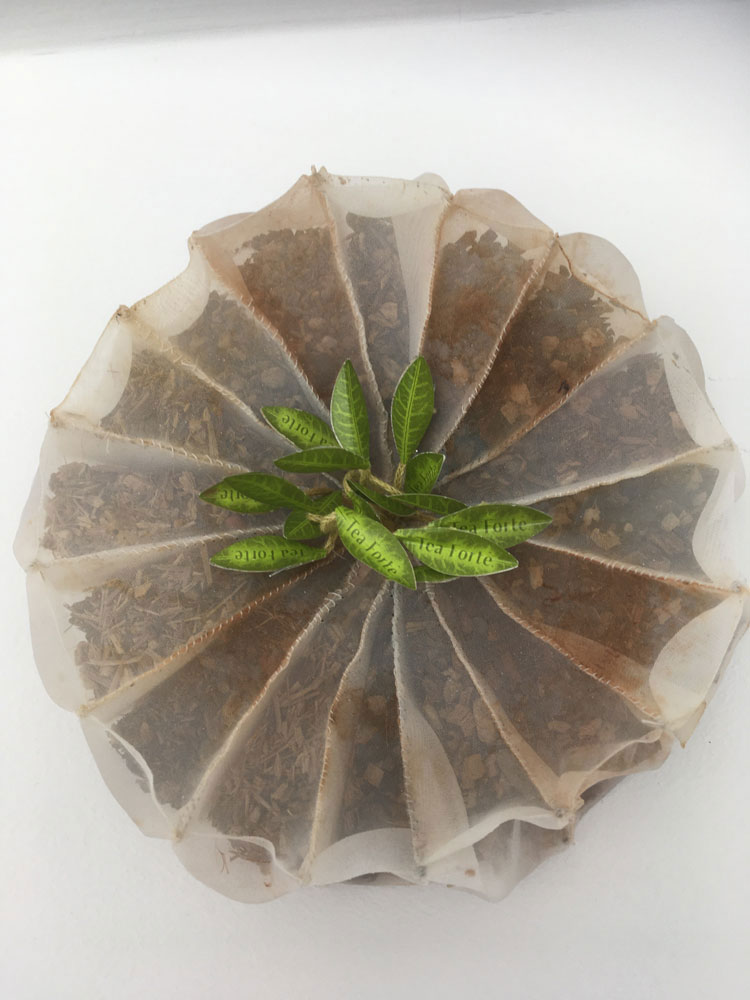
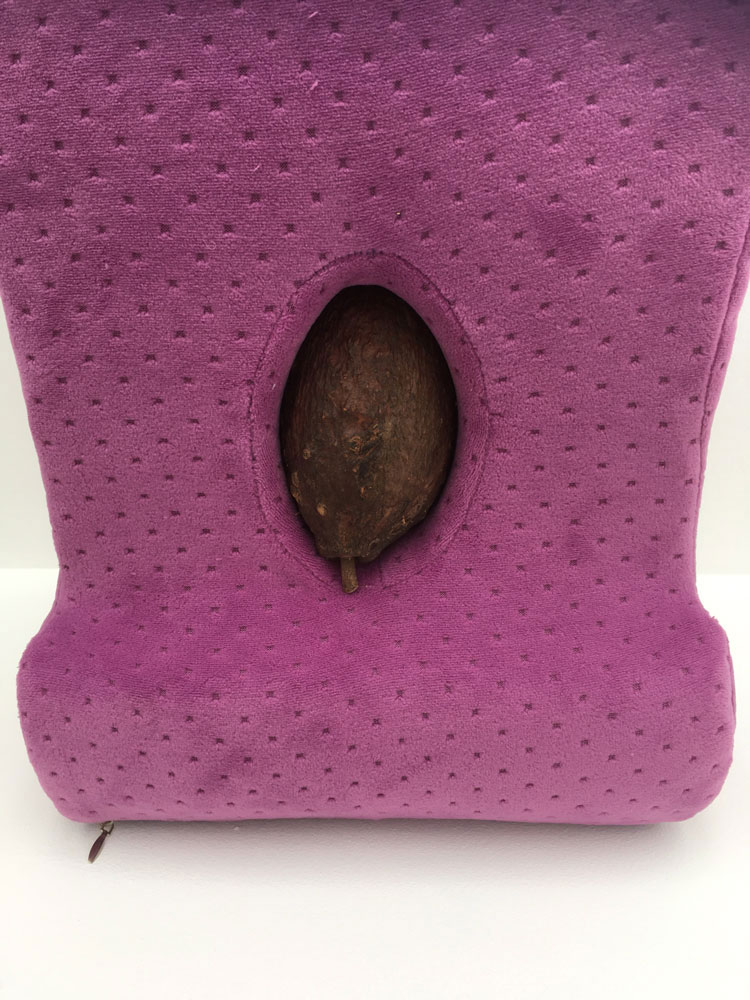
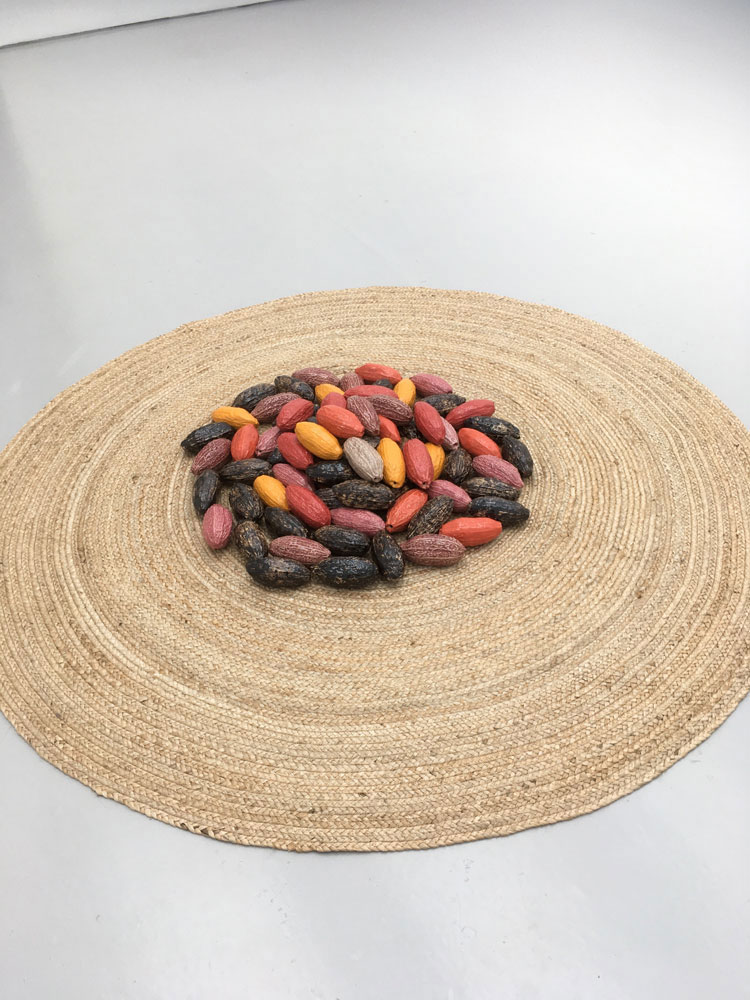
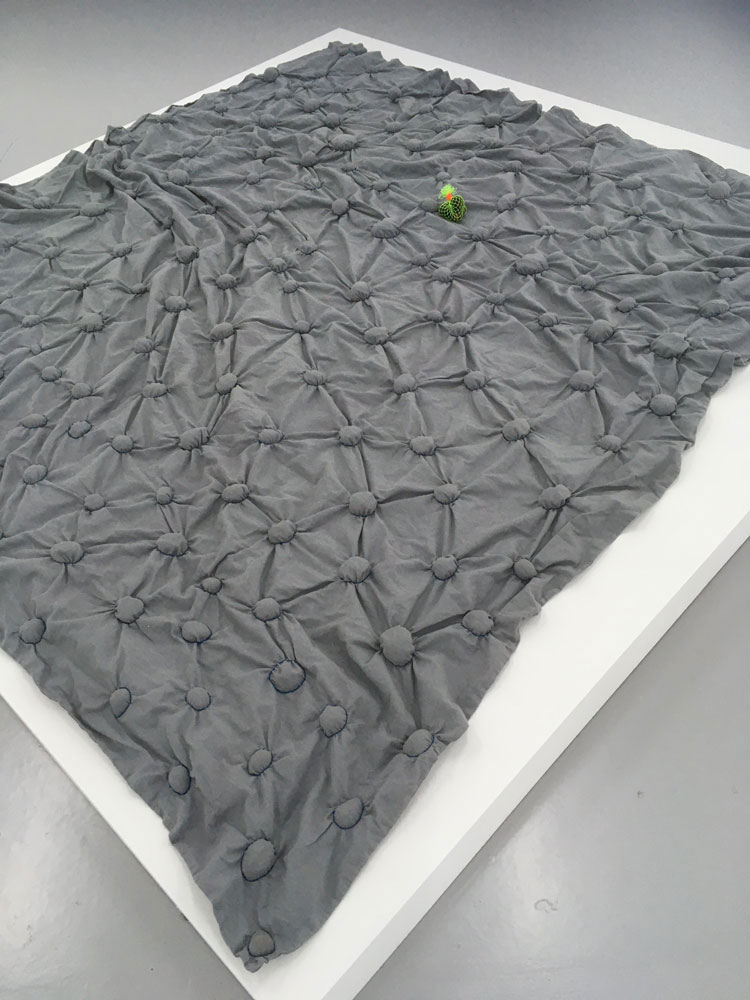
-1994-top,-1996-below.jpg)
